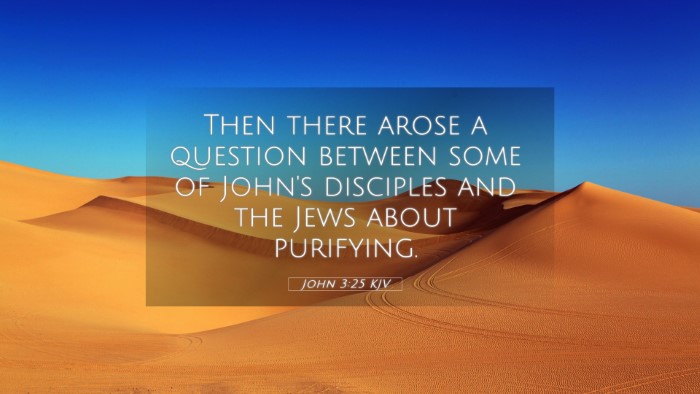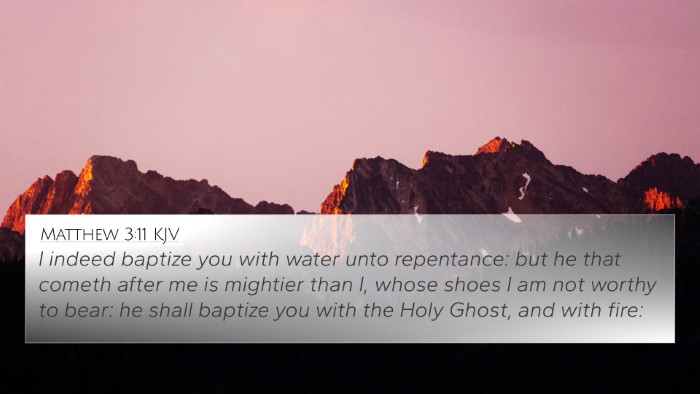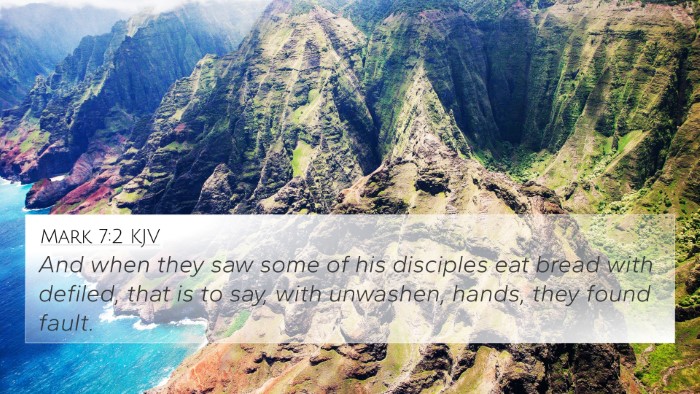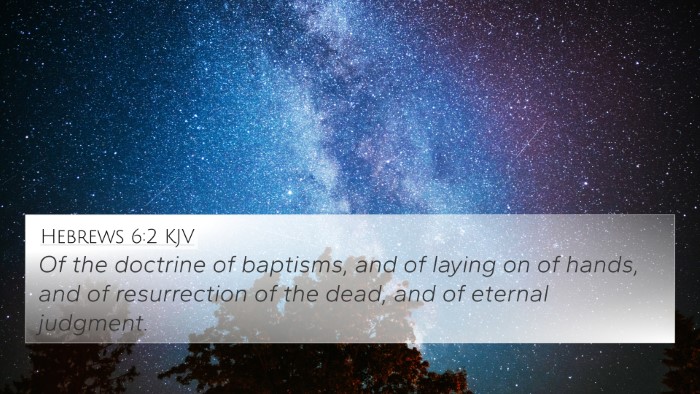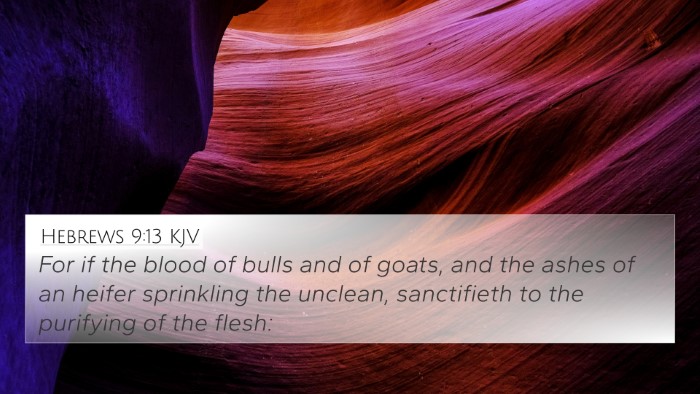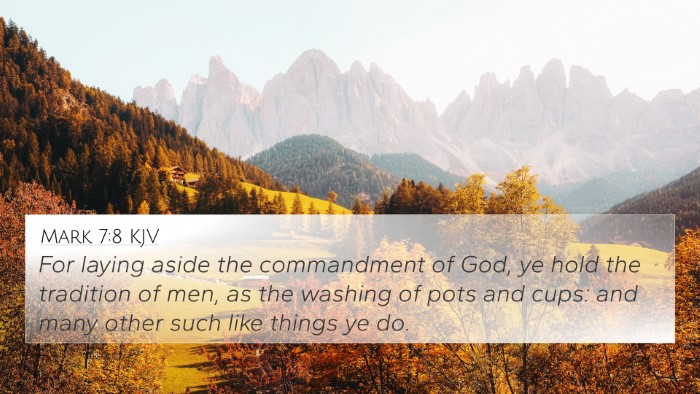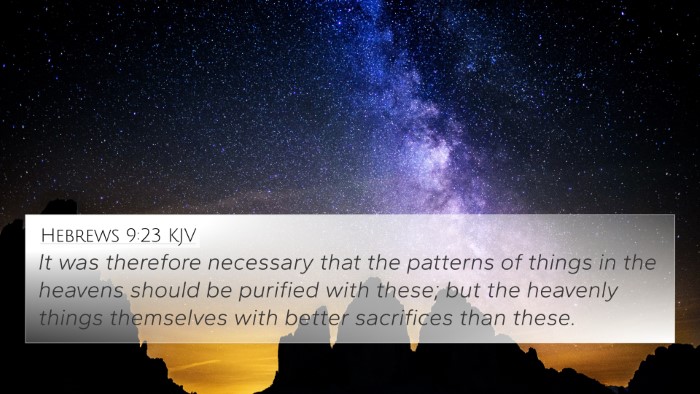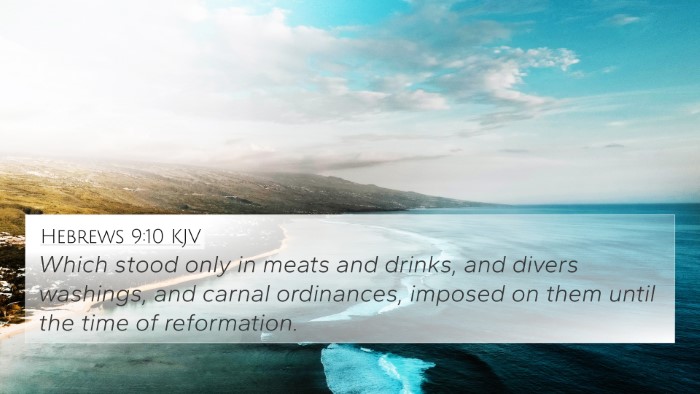Meaning and Interpretation of John 3:25
John 3:25 states: "Now there arose a discussion between some of John’s disciples and a Jew over purification."
This verse is situated in a context where the ministry of John the Baptist is flourishing. It highlights a moment of contention among the disciples of John and an unnamed Jew regarding the ritual of purification, which was significant in Jewish law and culture. The verse implicitly underscores the theme of transition from the old covenant to the new covenant as epitomized by the ministry of Jesus.
Summarized Commentary Insights
-
Matthew Henry:
Matthew Henry notes that disputes regarding purification reflect deeper theological questions about rites and their significance. He emphasizes that John's ministry was about preparing the way for Christ, and the discussions signify the disciples’ misunderstanding of their role in relation to Jesus’s greater purpose.
-
Albert Barnes:
Albert Barnes elaborates on the historical context, suggesting that the argument likely concerned Jewish purification laws versus the transformative baptism that John preached. This is an illustration of how John's followers might have clung to traditional practices in the wake of the new covenant brought by Christ.
-
Adam Clarke:
Adam Clarke highlights that the lack of clarity among John's disciples reflects a common theme in the early church where understanding of Jesus's teachings was still developing. Clarke points out that this dispute serves as a precursor to John's further affirmations of Jesus's preeminence, which would rectify these misunderstandings.
Connections Between Bible Verses
John 3:25 provides a rich backdrop for understanding the transformational shift from the traditional Jewish practices of purification to Christ's redemptive work. Here are some cross-references that enrich this verse:
- Matthew 3:11: John the Baptist emphasizes the importance of repentance and the differences between his baptism and that of Jesus.
- John 1:26-27: John speaks of the one who comes after him—the one whose sandals he is not worthy to untie, foreshadowing Jesus's greater authority.
- Mark 7:1-8: Jesus's teachings challenge the traditions and rituals that the Jewish leaders held dear, resonating with the issue of purification.
- Hebrews 9:9: Discusses the limitations of the old covenant’s rituals, drawing a contrast with the new life offered through Christ.
- John 4:1-2: Highlights the growing ministry of Jesus, which emphasizes baptism, bridging the understanding from John to Jesus.
- Acts 19:4: Paul references John's baptism, underlining the connection and continuity between their missions.
- Romans 6:4: Explores the significance of baptism as a form of dying to sin and rising anew in Christ, enriching the discussion of purification.
Thematic Bible Verse Connections
Several themes emerge from John 3:25 that resonate throughout the New Testament:
- **Ritual vs. Relationship**: The tension between traditional rituals and the invitation to a personal relationship with Christ.
- **Baptism as a Symbol of New Life**: The transition from John's baptism of repentance to Christ's baptism of the Spirit.
- **Preparation for the Messiah**: John’s role in preparing hearts for the coming of Jesus, further reflected in John 1:29.
Tools for Bible Cross-Referencing
To deepen understanding of Bible verses, especially those like John 3:25, utilizing cross-reference tools can be invaluable. Resources include:
- Bible Concordance: A comprehensive index of words and their locations within Scripture, allowing for quick word studies.
- Cross-Reference Bible Study Guides: These provide thematic links and associated verses for a broader understanding of biblical concepts.
- Bible Chain References: Systems that guide readers through linked verses on particular themes or subjects.
Conclusion
John 3:25 not only highlights a moment of contention but also serves as a key to understanding the shifts in early Christian thought. The engagement with purification reveals the transitional nature of faith practice, urging a deeper exploration of the relationship Jesus offers compared to traditional Jewish law. Consequently, through a tapestry of interconnected verses, believers today can glean insights that enrich their spiritual journey and understanding of Scripture.

